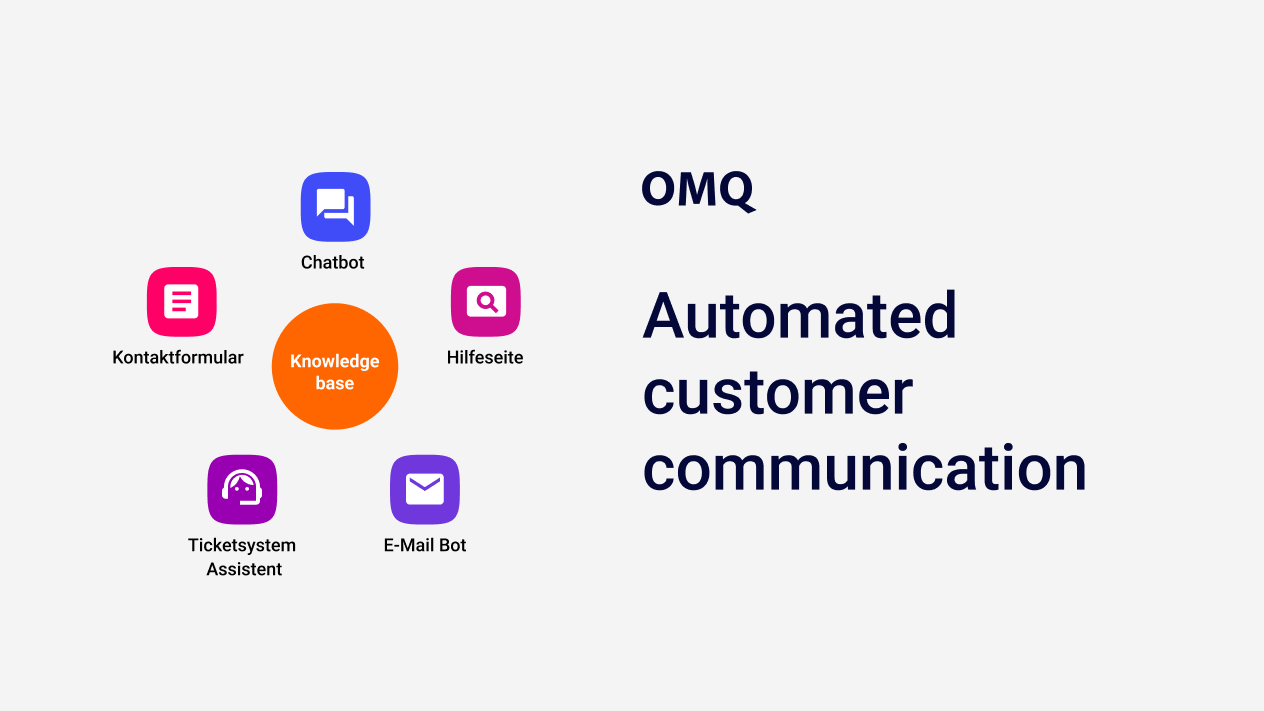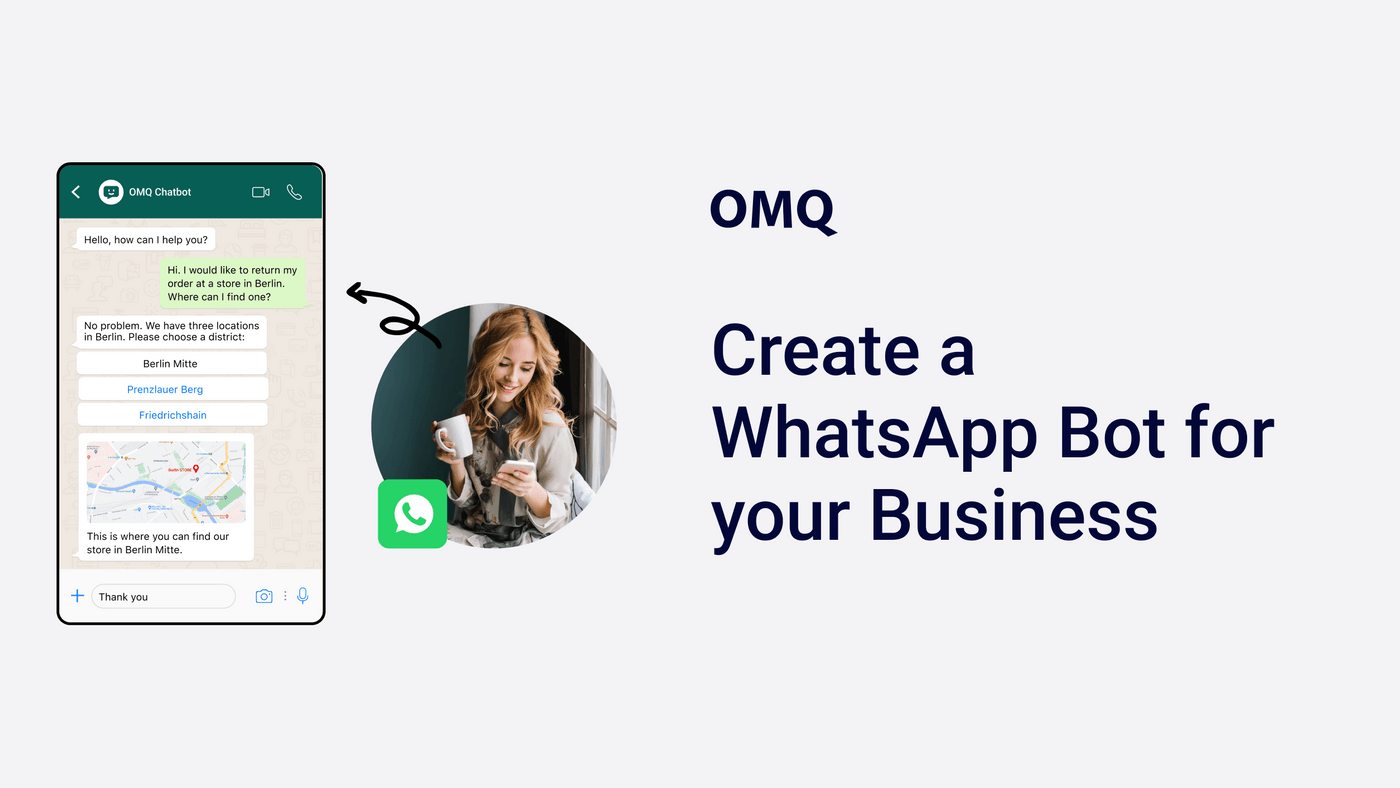Chatbot
WhatsApp Chatbot: Messengers as Customer Service Channels
Discover the advantages of WhatsApp chatbots in customer service and how they can optimize your business.
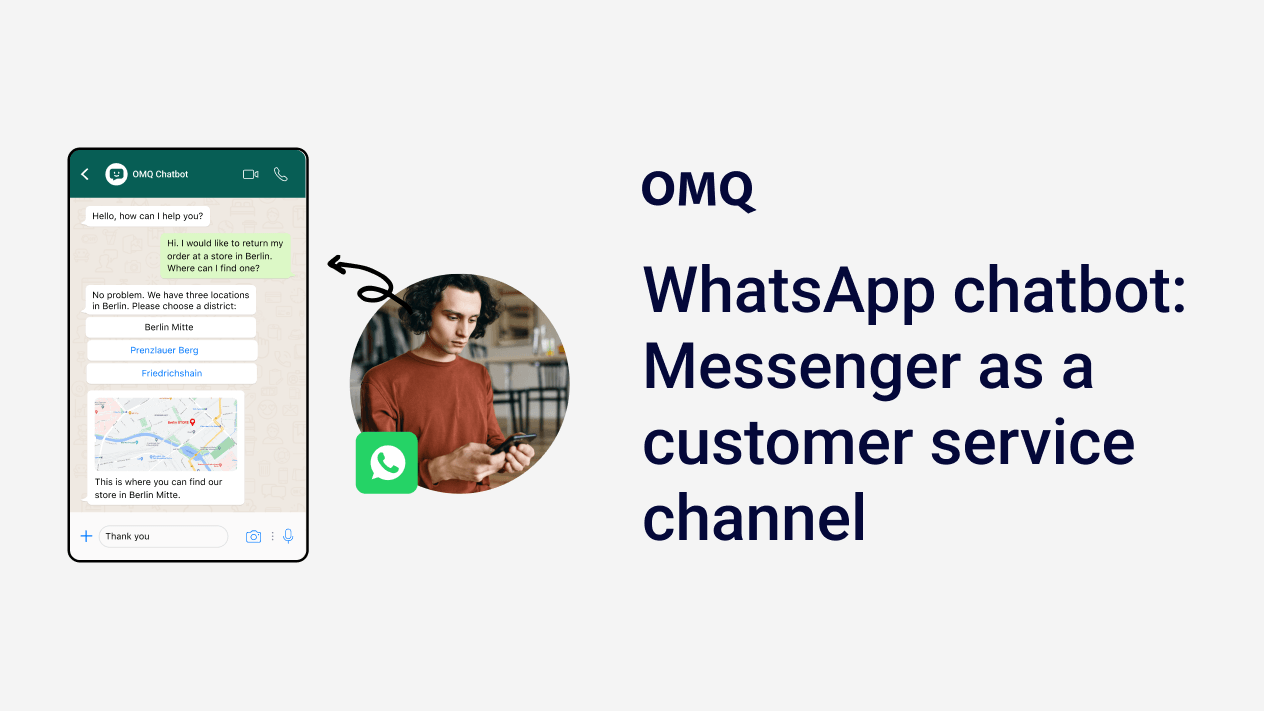
With good customer service, companies rise or fall. A product or service may be excellent, but if customers don’t feel adequately supported, they are unlikely to make a purchase. However, good customer service today means much more than just being active on a company’s website.
The increasing use of messaging apps like WhatsApp opens up many possibilities for creating a more approachable presence. These apps allow companies to communicate faster and more naturally with their customers – for example, through WhatsApp bots, which also enhance efficiency.
In this article, we’ll explore the benefits of using a WhatsApp chatbot as a customer service channel and explain why it can be advantageous for your business.
WhatsApp Chatbot: Definition
A WhatsApp chatbot is an advanced, automated program designed to interact with users via the popular messaging platform WhatsApp. These bots are built to handle a variety of tasks that enhance customer service while improving efficiency.
Basic functions of a WhatsApp chatbot include the ability to quickly and accurately answer frequently asked questions. Some bots can also handle simple tasks such as scheduling appointments or checking order statuses. This significantly reduces customer wait times while easing the workload on human support staff.
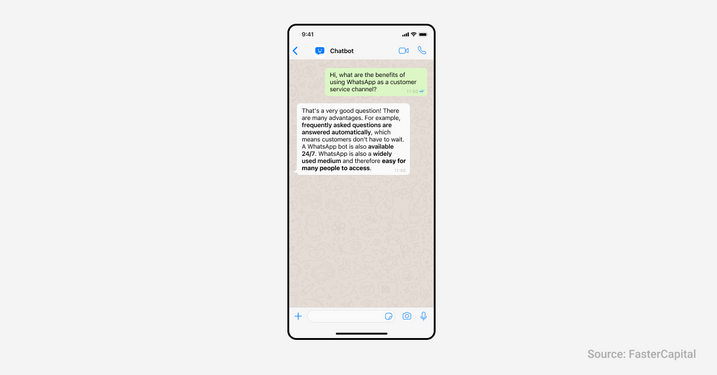
Example for a typical chat with a WhatsApp bot.
Powered by artificial intelligence (AI) and machine learning, these chatbots can realistically simulate human conversations. They continuously learn from user interactions and adjust their responses accordingly to provide a more personalized experience.
Overall, WhatsApp chatbots represent an innovative solution that enables companies to remain competitive in today’s fast-paced digital landscape. They offer not only a cost-efficient way to scale customer service but also the potential for long-term improvements in customer retention and loyalty.
Messengers as Customer Service Channels
Platforms such as WhatsApp, Facebook Messenger and others allow companies to communicate with their customers in real time. These channels offer a convenient and efficient way to process requests, solve problems and provide information. By using messengers, companies can not only shorten response times, but also build a more personal relationship with their customers.
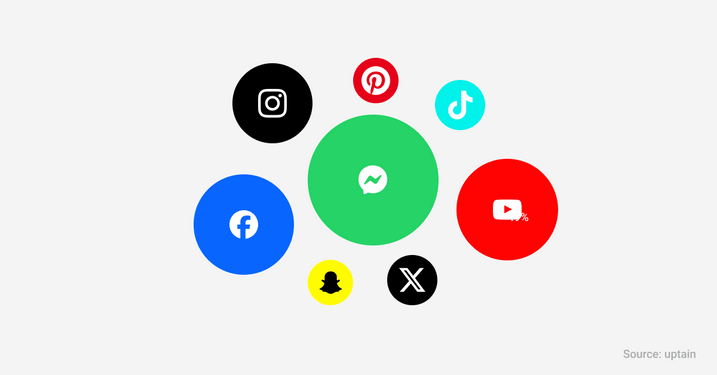
Companies should use a variety of channels in order to reach many customers.
Companies can not only offer fast and uncomplicated customer service via Messenger, but also send personalized offers and information directly to their target group. The ability to share multimedia content also opens up creative ways for marketing strategies and product presentations.
At a time when direct and authentic communication is becoming increasingly important, messengers are powerful tools for interacting with customers in real time and better understanding their needs.
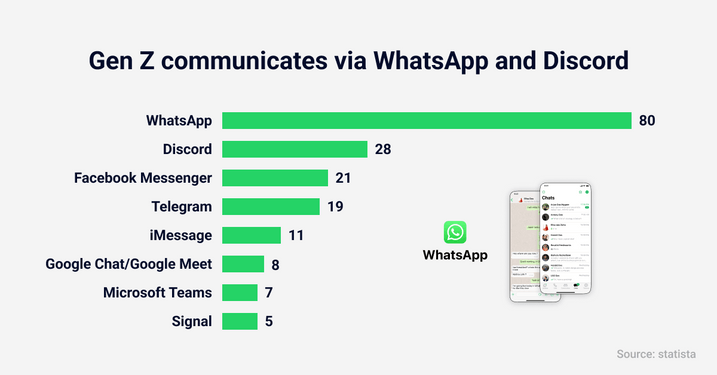
Statista’s survey shows the communication channels that Gen Z prefers. Consequently, these should be included in companies’ customer service strategies.
Benefits of Using Messengers as a Customer Service Channel
A key advantage is the ability to be available 24/7. In a globalized world where customers in different time zones may need support, this constant availability provides a significant competitive edge. Customers appreciate being able to voice their concerns at any time, which in turn boosts their satisfaction and loyalty to the company.
Another major benefit is the capability of chatbots to handle large volumes of inquiries simultaneously. This not only drastically reduces wait times but also enables companies to use their resources more efficiently. Employees can focus on more complex queries while the chatbot takes care of routine requests. This leads to optimal utilization of human resources and improves the overall productivity of the customer service team.
Moreover, messengers provide a familiar platform for customers thanks to their widespread use and user-friendly interfaces. Most people are already comfortable using messengers, which lowers the barrier to reaching out. This accessibility promotes open communication and strengthens the relationship between customers and businesses.
Messengers also support multimedia content like images, videos, and voice messages in customer service. This can be particularly useful for explaining complex information visually or documenting issues. Such features help make the service more personal and interactive.
In summary, using messengers as a customer service channel offers not only technical advantages through automation and efficiency but also qualitative improvements in how businesses interact with their customers. It’s a tool that positively impacts both the customer experience and business processes, contributing significantly to a company’s success.
How Does a WhatsApp Chatbot Work?
A WhatsApp chatbot is integrated into the platform through AI-based software. This intelligent software is designed to analyze incoming messages and respond with predefined answers or AI-generated replies. The process begins with recognizing and processing user queries, during which the bot identifies keywords and phrases to understand the context. Based on this, it can deliver precise responses tailored to user needs.
Implementing such a system requires technical expertise and careful planning. It’s crucial to design the chatbot to operate effectively while remaining flexible enough to adapt to changing requirements. This involves continuously updating and refining the algorithm to ensure the bot stays efficient and relevant. Additionally, developers must ensure that the chatbot is compatible with existing systems and can be seamlessly integrated into the current IT infrastructure.
Beyond technical implementation, designing the dialogue flow is critical to the success of a WhatsApp chatbot. A well-designed dialogue flow ensures that users are intuitively guided through conversations and their issues are resolved quickly and efficiently. It’s important for the chatbot to handle not only text-based messages but also multimedia content such as images or videos, greatly expanding its functionality and enabling it to address more complex queries.
Another important aspect of a WhatsApp chatbot’s functionality is the continuous monitoring of its performance. With analytical tools, companies can gain valuable insights into user behavior and optimize the bot accordingly. These data points help identify weaknesses and implement improvements to further enhance customer satisfaction.
Conclusion
A WhatsApp chatbot as a customer service channel offers numerous benefits for businesses of all sizes. It improves service quality with faster response times and greater availability while also boosting efficiency. The future of customer service undoubtedly lies in the integration of such technologies – be ready for this transformation!

